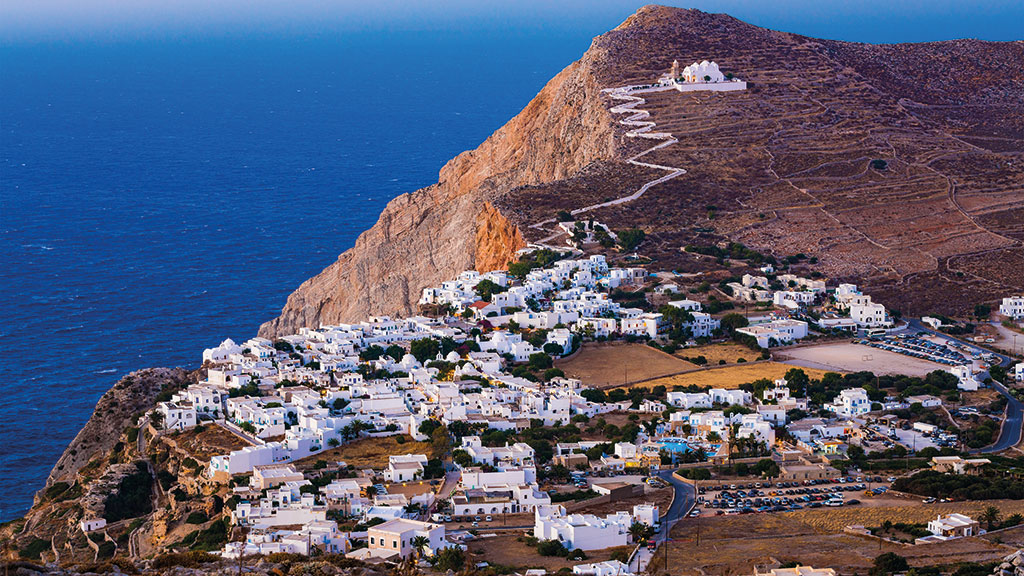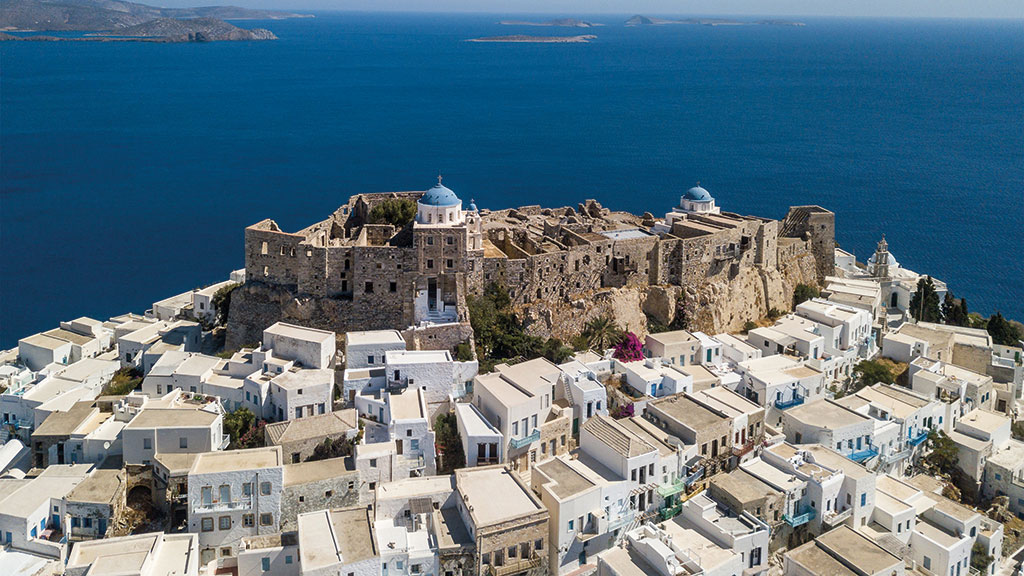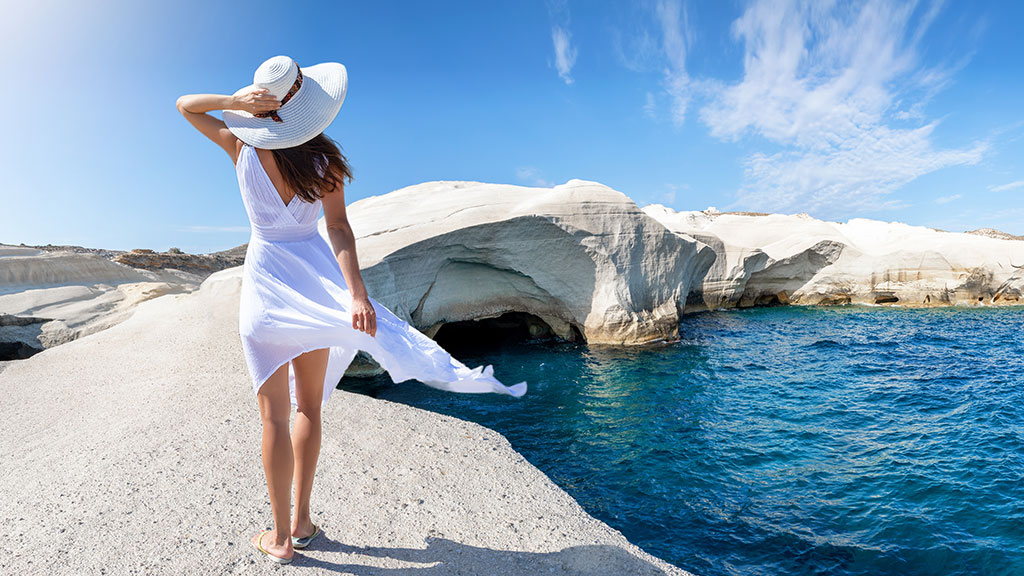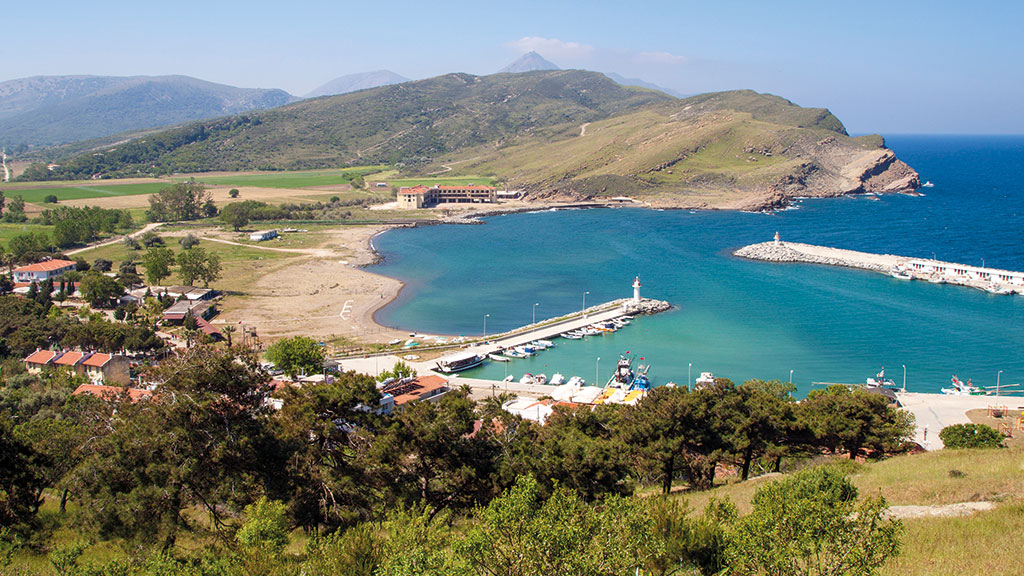Four overlooked Aegean island gems
Santorini is spectacular but overrun. There are quieter islands that are just as beautiful, says Chris Carter.


Get the latest financial news, insights and expert analysis from our award-winning MoneyWeek team, to help you understand what really matters when it comes to your finances.
You are now subscribed
Your newsletter sign-up was successful
Want to add more newsletters?

Twice daily
MoneyWeek
Get the latest financial news, insights and expert analysis from our award-winning MoneyWeek team, to help you understand what really matters when it comes to your finances.

Four times a week
Look After My Bills
Sign up to our free money-saving newsletter, filled with the latest news and expert advice to help you find the best tips and deals for managing your bills. Start saving today!
Folegandros: a quiet spot for enjoying sunsets
Santorini is famous for “epic sunsets illuminating its whitewashed houses, volcanic slopes and shimmering blue seas”, says Oliver Smith in Lonely Planet magazine. Less pleasingly, it is also known for crowds. Nearby Folegandros has “all of the same ingredients”, minus the hordes. It is a “hiccup of land at the southern edge of the Cyclades” archipelago, 40 minutes by fast boat from Santorini.
Political dissidents were exiled there during Roman times. “You might well chance insulting a tyrant to savour the sunset from Hora – one of the loveliest villages in the archipelago.” A footpath leads from its “higgledy-piggledy core” to Panagia, “a church standing sentinel over the island”. From the hilltop you can catch “the last drops of the day’s sunshine”. The Ampelos Hotel (£100, top-hotels-gr.com) has “sparse, comfortable rooms” with views of the church.
Astypalea: a favourite with arty Athenians

Astypalea is smaller than its siblings, Kos and Rhodes, in the Dodecanese archipelago, says Amanda Dardanis in The Sunday Times. Popular with “arty Athenians”, who come for its “easy airs, untamed beaches and authentic charms”, the island is a “classy choice for those seeking quiet repose”.
MoneyWeek
Subscribe to MoneyWeek today and get your first six magazine issues absolutely FREE

Sign up to Money Morning
Don't miss the latest investment and personal finances news, market analysis, plus money-saving tips with our free twice-daily newsletter
Don't miss the latest investment and personal finances news, market analysis, plus money-saving tips with our free twice-daily newsletter
“You might not fall madly in love with it at first sight”: with its pebble beaches and burnished hills, everything is “khaki, cinnamon or ochre-coloured”. But the clifftop capital of Chora “spills downwards with sugar-cube houses, mini churches and blue-shuttered streets… At night, it sparkles like a Tiffany’s window”.
Crowning the town is Castro, a ruined Venetian palace, and a legacy of Astypalea’s Italian and Ottoman past. You can see it and enjoy the sunset from your open-air hot tub at Saluti da Stampalia (from £127, salutidastampalia.com), a recently opened “light-soaked villa”.
Milos’s delightfully untrodden beaches

The southernmost of the “sun-baked Cyclades”, Milos is a “volcanic oasis”, home to “picturesque whitewashed villages and hidden cliff-ringed coves”, says Michaela Trimble in The New York Times. It is formed around a central caldera, hence its “lunar-like rock formations”. Despite its many beaches, Milos is “delightfully untrodden compared with its more famous neighbours, Santorini and Mykonos”.
It has an interesting history, too. The Minoans once exported the island’s obsidian to Crete for weapons. More recently, it was in Milos, in 1820, that amateur archaeologist Olivier Voutier unearthed the “Venus de Milo”. The statue now lives at the Louvre, “but Milos’s mystique remains intact”. Stay at Skinopi Lodge (around £400, skinopi.com). The minimalist, boutique hotel is set amid wild sage, lavender and thyme, and sits above a fishing village on a rocky ridge overlooking the sea.
Turkey’s unspoilt sprinkling of islands

Compared with Greece, Turkey has “a mere sprinkling” of islands and hardly any in the Aegean Sea, says Terry Richardson in The Daily Telegraph. They “are truly off the beaten track”. Gökçeada is Turkey’s largest. The Greeks know it as Imbros and it gets several mentions in Homer’s Iliad. “Its rolling, volcanic mountains are fragrant with thyme, dotted with attractive oak forest and there are numerous unspoilt sandy beaches lapped by pristine waters.”
Not many Greeks remain, but their “picturesque stone houses and churches survive”. Flamingos pass through during the migration season and the “stiff Aegean breezes” make kite and windsurfing popular pastimes. Turkey’s only underwater national park, off the north coast, is also excellent for diving. “Imbros Organik Hotel (from £40, gokceadaimbroshotel.com) is set in “an isolated Greek village”. It “is a real hideaway”.
Get the latest financial news, insights and expert analysis from our award-winning MoneyWeek team, to help you understand what really matters when it comes to your finances.

-
 How a ‘great view’ from your home can boost its value by 35%
How a ‘great view’ from your home can boost its value by 35%A house that comes with a picturesque backdrop could add tens of thousands of pounds to its asking price – but how does each region compare?
-
 What is a care fees annuity and how much does it cost?
What is a care fees annuity and how much does it cost?How we will be cared for in our later years – and how much we are willing to pay for it – are conversations best had as early as possible. One option to cover the cost is a care fees annuity. We look at the pros and cons.